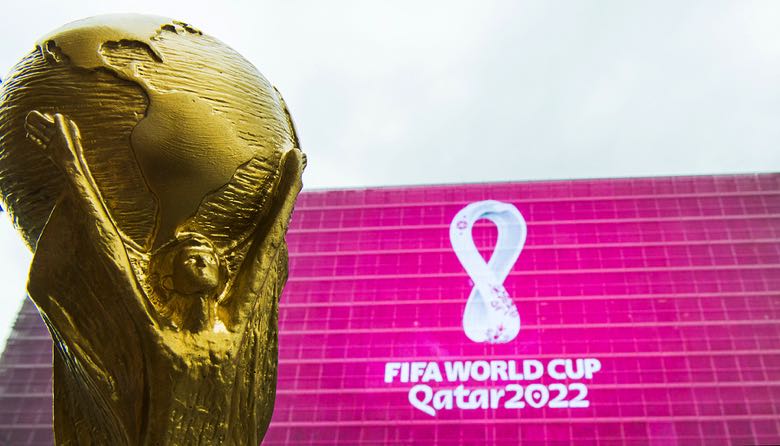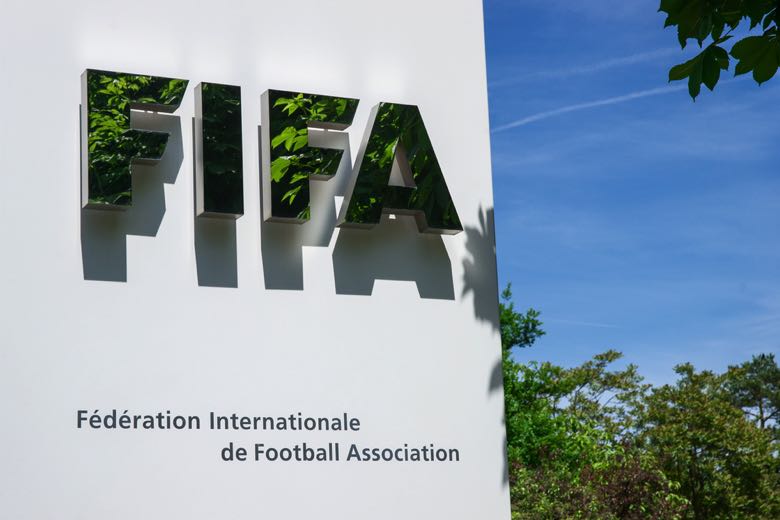It has been the pinnacle of international football for a century, and will surely remain so for another 100 years or more. Simply qualifying for the World Cup is a dream come true for some countries, whereas for others getting their hands on the shiny Jules Rimet trophy is the minimum expectation from the quadrennial showpiece.
While the true joy of the World Cup is in the on-field competition, it should be noted that there’s a genuine financial bonus to qualifying for the tournament too. That was starkly evidenced by the financial reports released by the Football Association of Wales (FAW) in the aftermath of the 2022 World Cup.
That edition of the event in Qatar was the first that Wales had qualified for since way back in 1958, so it was absolutely no coincidence that FAW revealed record earnings for the financial year of 2022/23. Those amounted to £36.2 million, which is a whopping increase of more than 50% on the same period in 2021/22. Around £9 million of that was prize money, which was redistributed to the players and staff, as well as going towards the logistical costs of playing at the World Cup. FAW has also invested in grassroots football in the country, too.
But that’s only one of the revenue streams that qualifying for the World Cup creates. Playing at the tournament means more media interest and coverage – TV and radio deals were negotiated to the tune of £8.2 million. So countries do make money from qualifying for the World Cup, and while that’s water off a duck’s back for the more established nations, for those with rather less resources at their disposal, qualification can change a nation’s fortunes financially for years to come.
Do Host Countries Make Money from the World Cup?

Qualifying for the World Cup is financially fruitful, but what about hosting the tournament? Instinctively, you would think that the tourist revenue that the World Cup generates would be a huge boost to the local economy – more than three million people attended games at Qatar 2022, which is a surprise given the cost and logistical difficulties of travelling to the Middle East from the four corners of the globe.
Costs Tend to Outweigh Money Earned
You can also chuck in merchandise sales, as well as mammoth sponsorship deals and commercial agreements, which add up to a pretty penny. But there are costs to consider too. The host nation has to fund the infrastructure of welcoming millions of people to the World Cup, from transport links to stadia of adequate size and quality. For Qatar, which essentially didn’t have a footballing infrastructure, that meant building from the ground up.
According to reports, they ended up forking out £175 billion just to host the World Cup – around £250 million more than Russia had four years prior. FIFA paid Qatar around £1.3 billion to host the World Cup, but that’s a drop in the ocean compared to the country’s outlay – ultimately, Qatar made a huge loss on hosting the tournament.
But not all things need to be measured quantitatively – especially when you have cash to burn thanks to your oil reserves. As we have seen in Saudi Arabia, Middle Eastern nations are beginning to embrace sport and are throwing huge sums at hosting football tournaments, boxing bouts, F1 races and the like.
A Huge Honour
Some call it sportswashing, some call it a metaphorical flexing of muscle. Others, within the nations themselves, will tell you that the Middle East has suddenly developed a love of football that they barely had during the prior century.
Hosting a World Cup is still considered a major feather in the cap, even though – economically speaking – it’s a catastrophic decision. For context, some nations nearly have nearly gone bust hosting the Olympic Games, while nobody wants to host the 2026 Commonwealth Games; Birmingham City Council, who hosted the 2022 edition, has since declared bankruptcy. Will the football World Cup ever be seen in the same light?
Do Countries Get Paid Prize Money the World Cup?
While hosting the World Cup is a financial disaster, playing at one is great news for a country’s football association and their players and staff. At Qatar 2022, every country that qualified for the group phase was awarded £7 million in prize money, which was handed to each individual football association – they could then decide how much was given to their players/coaches, and how much went into the FA’s coffers.
There was a top-up for each nation that went on to each subsequent stage of the tournament:
- Last 16 – £10 million
- Quarter Final – £13.5 million
- Semi Final – £20.5 million
- Runner Up – £24 million
- Winner – £33.5 million
Hence why members of the Argentine FA were dancing a particularly joyous jig of delight when Lionel Messi lifted the World Cup trophy in 2022.
Does FIFA Advantage from the World Cup?

There’s a certain irony to the fact that while host countries lost spectacular sums of money putting the World Cup on, FIFA are laughing all the way to the bank. Ticket sales are processed by a company that is 100% owned by FIFA, therefore it’s the governing body – rather than the host nation – that makes money from the crowds at World Cup games.
FIFA also retains exclusive rights to the marketing of the World Cup, which typically brings in around £800 million during each four-year cycle of the tournament. Then there’s the TV and media rights, with all money generated kept by – you guessed it – FIFA. For the 2022 World Cup, broadcasters stumped up a combined £3.6 billion for the right to show coverage of the action.
With other revenue streams also added to the mix, FIFA reported a gain of nearly £6 billion in their accounts from the World Cup. That was an increase of around £840 million on the 2018 edition, so despite the moral and logistical issues associated with the World Cup in Qatar, FIFA will consider the tournament to be a huge success. While host nations count the cost of hosting the World Cup, FIFA takes a celebratory dive into its metaphorical vault of cash.

